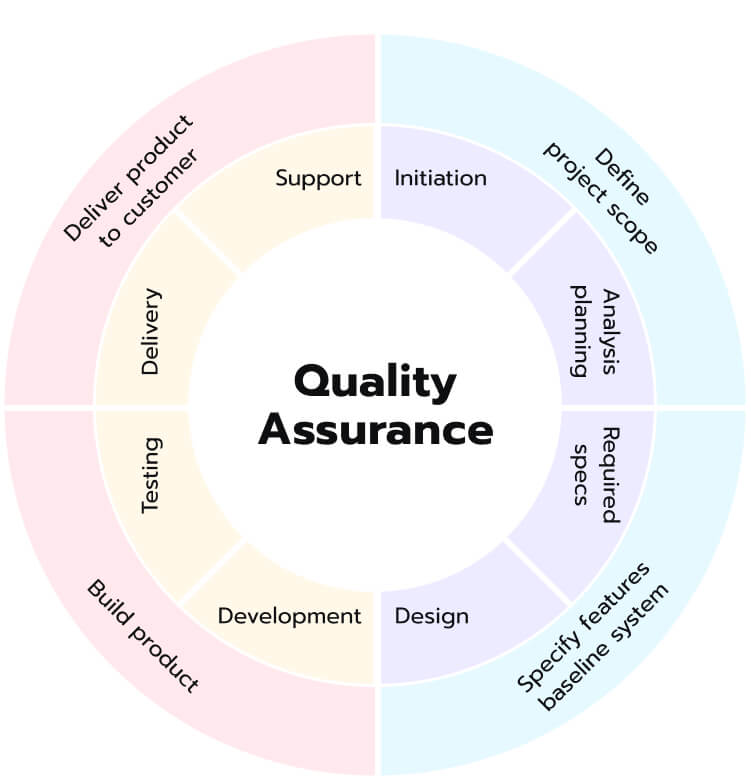Unveiling the crucial role and unique value of QA engineers in software development.
In the dynamic world of software development, questions often arise about the necessity and value of specific roles within the team. One question that recently caught my attention on Quora was, “Why should you hire a QA engineer if you can get coders to do all the work with quality control of test scripts for your web application?” This question reflects a common misconception in the industry – that the responsibilities of a QA engineer can be distributed among other team members, potentially saving costs.
While this might seem like a practical approach on the surface, it overlooks the unique and critical role that QA engineers play in the software development process. In this article, we explore the importance of QA engineers, their distinct value to a team, and why their role cannot be effectively replaced or replicated by other team members.
The Cardinal rule
There is a Cardinal rule in software testing tools operating systems, and development: never have the people who wrote the code test it. Anyone who has been around software development for any time will understand the importance and the truth behind this maxim.
“Cardinal rule in software development: never have the people who wrote the software quality code test it.”
Having established the cardinal rule that the creators of the code should not be the ones to test it, we can now delve into the reasons behind this principle. Let’s shift our perspective to the developers’ side of the story to better understand their role and the challenges they face in the software development process.
The developer’s side of the story
Let’s look at what developers are responsible for compared to becoming a QA engineer first. They build your application from the ground up according to your specific wants and needs. Not much? Wrong. While it might sound simple, it takes a lot of time to learn, master and a lot of brains to accomplish.
The catch is that those guys often need to speak a common language with business people. So you’ll undoubtedly need an intermediary to describe your business goals and issues and transform those into specific engineering tasks.
The second catch
Like many people working on complex tasks, developers can be possessive and sensitive about the quality assurance of the end product, sometimes treating code as ‘their baby.’ That automatically makes them non-objective when it comes to testing that code.
While they may treat their code as a work of art and take pride in how they have produced it, it can also close their eyes to some minor faults. This can be true with a single software developer or with a team of software developers, where each developer may be responsible for different functionality.
From a software Quality Assurance perspective
In software development, the role of a Software Quality Assurance (QA) engineer needs to be more understood and understood. However, their contribution is vital to the successful delivery of a software product, as they ensure the quality and functionality of the software throughout its development lifecycle.
What do you get from hiring software Quality Assurance engineers?
The QA engineers monitor every phase of the software development process to ensure design quality, ensuring that the software adheres to the standards set by the whole development team, company, and client. Put differently, and they help ensure the final product does what it should.
Is there confusion involved?
Sometimes software QA engineers need clarification with software testers. Software testers test parts of the software at different stages of development, whereas a software quality assurance engineer oversees the entire development process, which includes software and testing processes; from start to finish, a software tester has a broader look at the development process, as well as keeps track of the delivery of your application.
The value of a Quality Assurance engineer
In addition to their role in monitoring and maintaining the quality of the software, QA engineers bring a unique value to the table. They act as a bridge between the development team and the end user. By understanding the user’s needs and expectations, they can guide the development process to ensure that the final product meets and exceeds these expectations.
They are also instrumental in identifying potential issues or bugs early in the software development life cycle process, saving time and resources in the long run. Furthermore, their objective perspective allows them to assess the product’s quality without the bias that a developer might have. In essence, a QA engineer is not just a gatekeeper of quality but also a valuable asset that contributes to the overall success of the software product.










